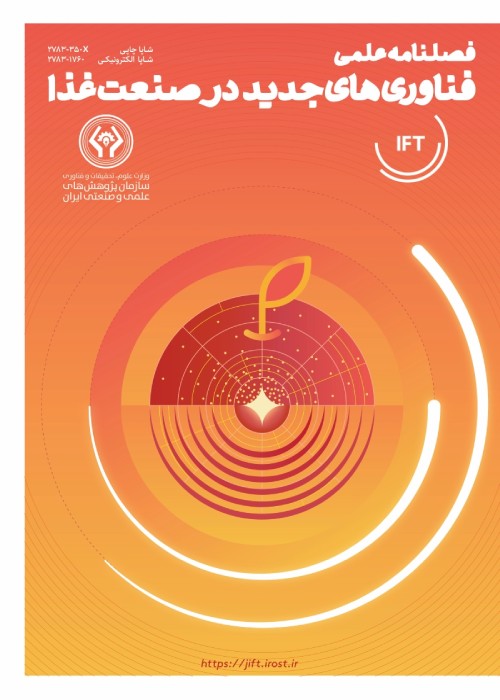Encapsulation of Barije (Ferula gummosa) essential oil in nanoliposomal system and evaluation of its physical and antimicrobial properties
The aim of this study was to encapsulate the Barije(Ferula gummosa)essential oil (EO) in liposomal system and evaluate its physical and microbial properties. Accordingly, nanoliposomes were produced by using specific ratios of lecithin-cholesterol by thin-film hydration-sonication method. Constitutive compounds of essential oil were identified using GC-Mass. The physical properties of the liposomes, such as particle size, polydispersity index, zeta potential, and the efficiency of encapsulating system, were studied. Evaluation of antimicrobial properties was performed by the two methods of minimum inhibitory concentration (MIC) and disc diffusion test on E. coli O157:H7. Also, the effect of sub-inhibitory concentration of EO (sub-MIC) was evaluated before and after encapsulation against the growth of bacteria over 24 h. The most important constituents of EO were β-pinene (60.84%) and α-pinin (9.14%). The average particle size of EO loaded liposomes was in the range of 74.27 to 99.93 nm, which had a significant difference with the empty nanoliposome (138.76 nm) (p<0.05). Adding cholesterol to lecithin in a double-layered membrane of liposomes increases particle size and reduces the effectiveness of encapsulation (p<0.05). Electrostatic stability of empty liposomes was improved by adding a certain amount of cholesterol, but the zeta potential did not change significantly in cholesterol-based samples when essential oil was replaced in the liposomes (p<0.05). MIC of EO in encapsulating mode was lower in the liposomal system without cholesterol than in free mode. This was confirmed by measuring the diameter of the bacteria's lack of growth. Nanoliposome specimens containing essential oil (60 mg lecithin) with concentration of 50 and 75% MIC significantly decreased the growth of E. coli O157:H7 compared to free essential oil (p<0.05). This research showed that nano-liposomal essential oil was successfully produced by thin layer and ultrasonic hydration method and the cholesterol-free sample in the liposomal membrane had an antimicrobial effect on E. coli O157:H7 relative to its free essential oil.
- حق عضویت دریافتی صرف حمایت از نشریات عضو و نگهداری، تکمیل و توسعه مگیران میشود.
- پرداخت حق اشتراک و دانلود مقالات اجازه بازنشر آن در سایر رسانههای چاپی و دیجیتال را به کاربر نمیدهد.



